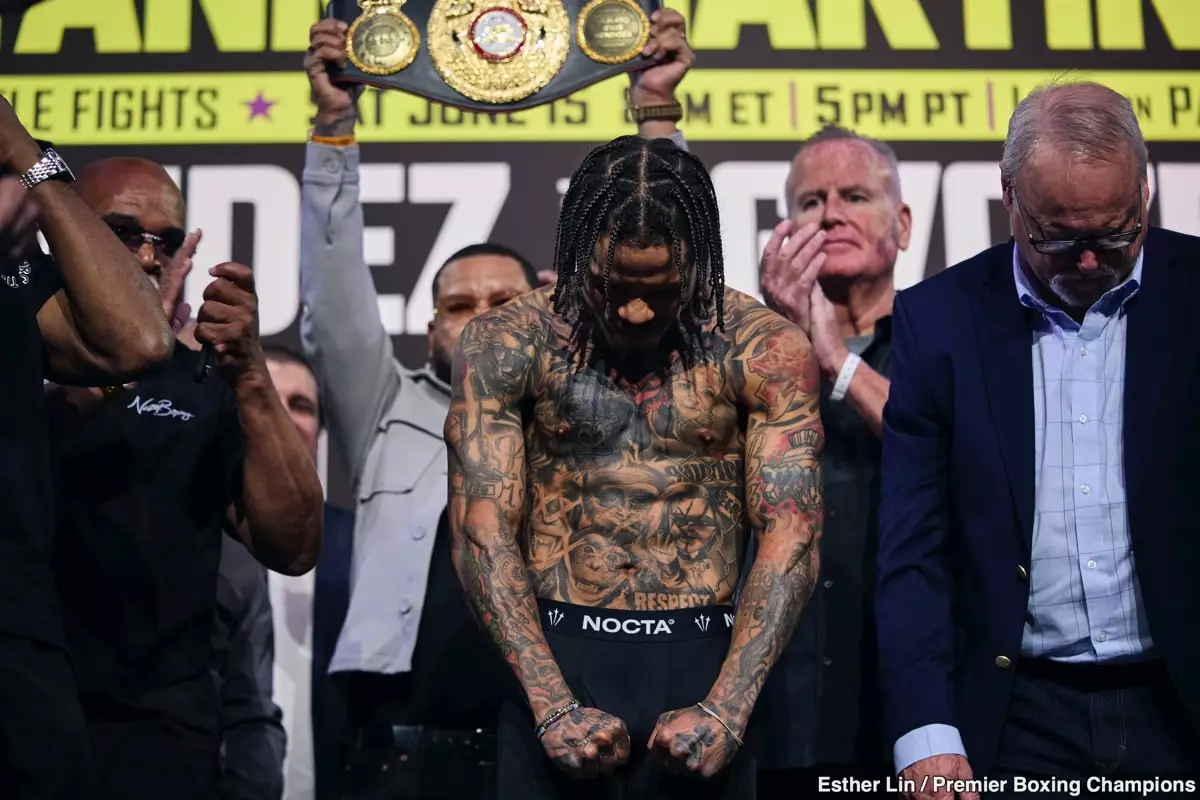Gervonta ‘Tank’ Davis is no stranger to scrutiny, particularly concerning the opponents he chooses to face in the ring. Recently, his coach, Kenny Ellis, felt compelled to respond to the backlash that erupted after it was announced that Davis would be defending his WBA lightweight title against Lamont Roach Jr. on December 14th in Houston. The criticism centers around a perception that Davis is avoiding high-stakes fights in favor of safer, less challenging opponents, perpetuating a cycle of matchmaking that frustrates fans and analysts alike.
Ellis highlights Roach’s pedigree as a seven-time national champion, suggesting that the fighter is far from being an easy matchup. Yet, historical context paints a different picture. Roach’s professional record (25-1-1, 10 KOs) includes a loss to Jamel Herring and a narrowly secured victory over Hector Luis Garcia, a fighter whom Davis dispatched with enviable ease in a more recent match. The question looms larger: is Davis deliberately selecting opponents that won’t test him?
The Call for Riskier Fights
The boxing community has voiced its discontent, citing a litany of available, skilled contenders within the lightweight division—names like Andy Cruz, Keyshawn Davis, and Raymond Muratalla are mentioned frequently as potential opponents who could elevate both Davis’s reputation and the caliber of the matchup. These fighters represent a significant challenge and a potential turning point for Davis, yet he opts for Roach, sparking allegations of “cherry-picking.”
Critics argue that this pattern highlights Davis’s reluctance to engage with truly formidable opponents. Ellis countered this notion by stating that fighters with more recognizable names have turned down opportunities to face Davis. He indicates that financial considerations may also play a role in these decisions, suggesting that the less popular Roach may be an easier option in terms of negotiations. However, the narrative of a champion shying away from the best competition remains a troubling one that clouds Davis’s burgeoning legacy.
A Sparring History?
The relationship between Davis and Roach extends beyond their upcoming fight; they are familiar with each other’s styles from previous sparring sessions where Davis allegedly emerged the victor. Ellis emphasized this history, asserting that prior performances in training are not indicative of fight night results. This argument fails, however, to alleviate fans’ concerns. Sparring, while valuable, does not translate directly to success in official bouts, and relying heavily on past interactions can be seen as a flimsy justification for the choice of Roach.
Moreover, this assertion raises doubts about the fighter’s actual readiness to face tougher competitors in future bouts. If Davis continues to choose opponents based on past sparring sessions rather than current performance metrics and competitive potential, he risks stagnation in an environment that thrives on evolution and risk-taking.
Kenny Ellis’s apparent nonchalance regarding the lack of marquee matchups for Davis also begs scrutiny. His comments suggest a comfort level with the current trajectory, implying that as long as fights are available, the label of ‘top-tier’ competition is irrelevant. This mindset may serve to protect Davis from criticism in the short term, but it inhibits long-term growth and may prevent him from solidifying his place among the elite in boxing history.
Expectations from fans grow ever larger, and boxing is not just about winning; it’s about the quality of opposition that shapes a fighter’s career narrative. A legacy crafted from safe bouts against lesser-known opponents can quickly devolve into a narrative of regret, particularly at a time when major matchups can define an athlete’s career.
Ultimately, the situation calls into question the balance between ensuring successful defenses and engaging in meaningful competitions. Davis’s trajectory, under Ellis’s guidance, may appear manageable, but it is critical for both the fighter and his team to confront the implications of continuously taking the path of least resistance. Authenticity in boxing demands that champions seek challenges that push them to their limits while captivating fans with compelling narratives and high-stakes matchups.
As the December fight approaches, the boxing world watches closely. Will Davis rise to the occasion in his title defense against Roach, or will the shadows of missed opportunities continue to haunt one of the sport’s most discussed figures? The answers may hold profound consequences for not only Davis but also the landscape of boxing itself.

